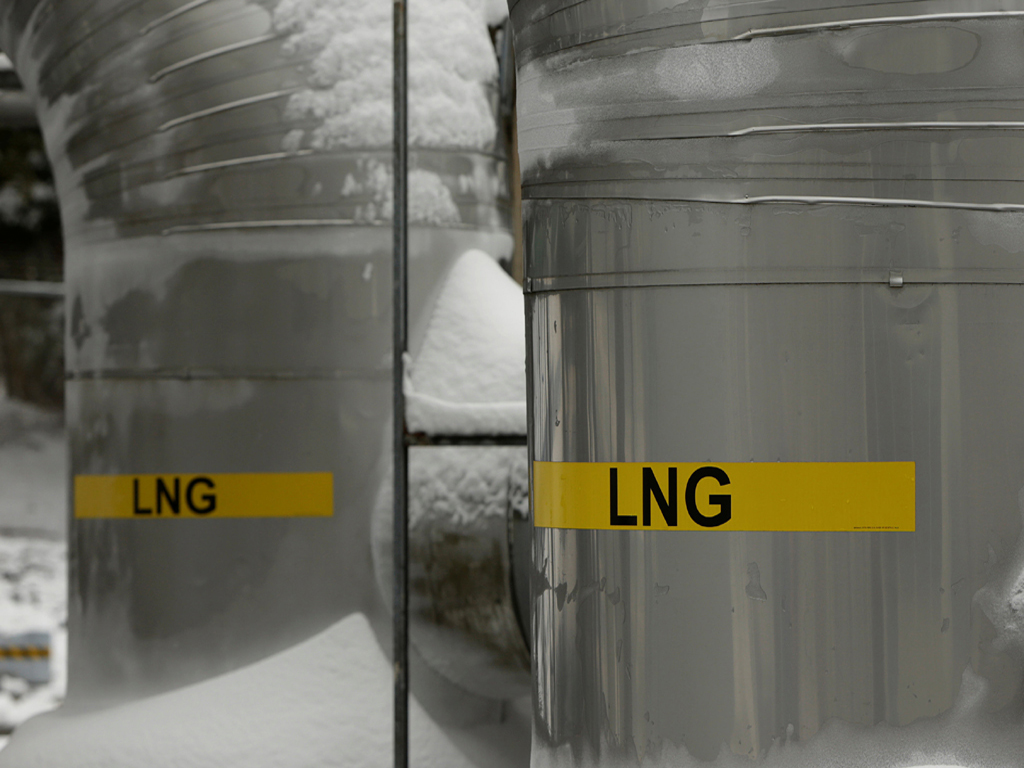 SINGAPORE: An inexorable decline in spot market prices for liquefied natural gas (LNG) is pushing utilities in Japan to be more aggressive in price reviews built into traditional long-term contracts linked to oil prices, lawyers and analysts said.
SINGAPORE: An inexorable decline in spot market prices for liquefied natural gas (LNG) is pushing utilities in Japan to be more aggressive in price reviews built into traditional long-term contracts linked to oil prices, lawyers and analysts said.
The utilities are also looking to buy more LNG on the spot market, where prices are plumbing three-year lows and are around half the average contract import price for buyers in Japan, the world's biggest importer of the fuel for power generation and industrial use.
The tougher stance marks a shift for Japanese utilities, which have long favoured stability of supply over price, partly because they have been able to pass on costs to consumers.
But liberalization in Japan's energy markets means the old guard utilities are losing customers to new entrants and they are desperate to cut costs.
"Given the gas and power markets liberalisation and intensifying domestic competition in Japan, it is very important for Japanese utilities to achieve competitive LNG prices so price review negotiations are becoming more intense," said Thanasis Kofinakos, head of gas and LNG consulting, Asia Pacific, at Wood Mackenzie.
According to reports, including one from Bloomberg, Japan's second-biggest city-gas company, Osaka Gas, is in arbitration with Exxon Mobil Corp's PNG LNG project in Papua New Guinea after failing to get a reduction in prices during a price review.
"We decline to comment on any details of price negotiations," said Osaka Gas spokesman Takahiro Yamane.
Exxon Mobil, operator and marketer of PNG LNG, also declined to comment."(Price review) negotiations did not end up in a settlement and so arbitration is the next available contractual recourse," said Kofinakos, adding that it was possible that more contract reviews would go to arbitration.
He said it was the second price arbitration in Asia, after Australia's North West Shelf LNG - operated by Woodside Petroleum - started proceeding against South Korea's Korea Gas Corp (KOGAS) last year.
But even if Osaka Gas succeeds in getting prices reduced, they are unlikely to be more than 5% below the agreed contract price, said one gas executive who has been involved in many LNG projects and price reviews."The last company you want to take on is Exxon," he said.
RISKY BUSINESS
Japan's average import price of LNG on a thermal heating unit basis was almost double the spot price for the fuel in June. Spot prices have since fallen to more than three-year lows.
Arbitration is risky and also expensive, costing as much as $15 million, said one Singapore-based lawyer who handles LNG contracts.
One recourse for the utilities is to buy more spot cargoes and many have said they are trying to do that.
Tokyo Gas, Hokkaido Electric Power, Tohoku Electric Power, Kyushu Electric Power and Hokuriku Electric Power have all said they are looking at ways to take advantage of cheaper spot LNG.
But the utilities are also limited in the number of spot cargoes they can take because most of their supply is met via the binding long-term contracts.
That is a hangover from the 2011 Fukushima disaster that shut Japan's nuclear reactors, which had met 30% of the nation's power needs. Without the reactors, electric power utilities rushed to sign long-term gas contracts, many of which are just starting up.
"It remains to be seen whether negotiations will succeed in resolving dissatisfaction over prices, and if they do not, whether buyers will back down or start (arbitration) proceedings," said a Tokyo-based lawyer specializing in gas projects.




























Comments
Comments are closed.